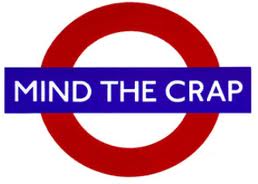The HECM Mortgage is Controversial? Well, it shouldn’t be.

I can no longer count the number of articles presenting the HECM mortgage program as being somehow “controversial.” The implication is that there is something amiss or wrong with the HECM program.
The thing is, that is not true. There is absolutely nothing inherently wrong with HECM mortgages. Not a thing. In fact, they are the most heavily regulated mortgages in the country, they require HUD counseling even before an application can be submitted… and they are truly unique. There’s not another mortgage anywhere that can do what the HECM can do as safely as the HECM does it.
HECM stands for Home Equity Conversion Mortgage and it refers to a mortgage program that was created by Congress and today is regulated by HUD… and insured by the FHA… that’s only available to homeowners or homebuyers over the age of 62.
HECMs are often referred to generically as reverse mortgages, but that term shouldn’t scare anyone. “Reverse mortgage” is a generic term from decades ago, so while a HECM can be considered a reverse mortgage, not all reverse mortgages are HECMs.
Here’s what it says in the U.S. Code about the purpose of the HECM program… word for word.
12 U.S.C. 1715Z-20 – HOME EQUITY CONVERSION MORTGAGES FOR ELDERLY HOMEOWNERS
(a) Purpose
(1) to meet the special needs of elderly homeowners by reducing the effect of the economic hardship caused by the increasing costs of meeting health, housing, and subsistence needs at a time of reduced income, through the insurance of Home Equity Conversion Mortgages to permit the conversion of a portion of accumulated home equity into liquid assets; and
(2) to encourage and increase the involvement of mortgagees and participants in the mortgage markets in the making and servicing of Home Equity Conversion Mortgages for elderly homeowners.
It should be simple to understand… as we get older our incomes tend to go down and our expenses tend to go up. So, the HECM program was put in place to help homeowners make their retirement years more secure. What could possibly be considered controversial about that?

The HECM is Truly Unique…
People often use the term unique to describe things that aren’t actually unique and the reality is that not many things are truly unique today. But the HECM is actually unique. There’s only one HECM program and nothing else can do what a HECM mortgage does.
One of the things that makes HECM mortgages unique is that the borrowers never have to make monthly or annual payments on the loan. Of course, borrowers can choose to make a payment anytime they want to, but they never HAVE to make a mortgage payment… ever.
When the homeowners die the home is left to the heirs and those heirs can either refinance the HECM or sell the home and keep the equity, but either way that’s when the HECM is repaid.
Think about that for a moment. If you switched your current mortgage to a HECM, you could decide if and when you make whatever payments you choose… but you never have to make a payment on your HECM.
So, the HECM allows people over the age of 62 to borrow against the equity in their homes, with no obligation to repay the mortgage as long as they occupy the house and it’s their primary residence. Any mortgage interest is repaid after the borrower moves or dies, assuming no payments are made.
Example of how the interest works… if your HECM balance was $100,000 and you didn’t make a payment all year. If the interest rate was 5%, then at the end of the year your balance would have increased to $105,000. You can choose to either pay the interest or you can let it accrue and not pay it until you sell the home or die.
The Impact Can Be Dramatic… and Tax-free.
Let’s say you have a mortgage payment of $2,000 a month and you switch it to a HECM.
Well, first of all by doing so you wouldn’t have to make that monthly payment anymore so you could put an additional $24,000 a year into your own bank account instead of paying what is likely to be mostly interest to your bank. Over five years, that could mean having an additional $150,000 in your proverbial nest egg.
In addition, the funds you get from a HECM are tax-free. If you’re withdrawing money from an IRA or 401(k) the money is taxable as ordinary income. So, depending on your situation it can be a big advantage to use tax-free money instead of having to pay the taxes on funds from a qualified retirement plan.
And that’s just the beginning of what HECMs can do…
HECM also offers a simple line of credit program that is guaranteed to increase every year and that you can tap whenever you need to… and another one that’s designed for home BUYERS that’s especially powerful when you’re selling a home in order to downsize into something smaller.
Consider this example…
Let’s say your home is worth $700,000 and after selling it you walk away with $650,000. You find a home for $400,000 that you like, but instead of needing to use $400,000 to buy it, you use a HECM for Purchase mortgage.
That means that you can buy that $400,000 home with roughly $200,000 down… and never have to make a monthly payment if you don’t want to.
It also means that you can put the $450,000 remaining from the sale of your home into your own bank account to make your retirement years that much better… and safer, financially speaking. And don’t kid yourself about retirement… you don’t know how long it will last so you should try to hold onto as much of your cash as you can for as long as you can.
The overriding point is that there’s absolutely nothing wrong with the HECM program. Congress passed it into law, HUD regulates it and it’s FHA insured. The HECM mortgages are exactly and precisely what they purport to be. They do what they promise to do every single time.
If you can utilize a HECM for whatever reason, you’ll find it literally unique. Nothing else will do what the HECM products will do. And they’ll do it every single time. What is “controversial” about that?
In terms of details, there are a handful to know… like it has to be your primary residence, although it will cover up to a four-plex, it has to be your primary residence and you’re still responsible for paying your property taxes and insurance. But because there are any number of ways that a HECM can be structured and used, one person’s reason for using one is likely very different than would be another’s.

So, if there’s nothing wrong with HECM mortgages, why do some think they’re controversial?
Well, a few key factors have helped to make the HECM program widely misunderstood. Some journalists simply don’t know what they’re talking about. And how the media covers HECMs is a big part of them being poorly understood. How people have been taken advantage of in the past is another… but neither has anything to do with today’s HECMs.
It’s absolutely tragic how poorly understood the HECM still is today, even though its reputation has significantly improved over the last few years. There is still a long way to go before the situation will change in a meaningful way, and that’s a real loss for countless Americans as they approach or are in their retirement years.
Does the bank ever own your home?
No. No. No. Never. I do realize that many people think that using a reverse mortgage means that the bank will own their home… but it’s simply not true. Having a HECM does not mean that the bank owns your home. Just like when you have any other kind of mortgage… you own the home… not the bank.
The bottom-line is that everyone approaching or in retirement should know about the HECM program and how it might impact their retirement years. There’s absolutely nothing wrong with today’s HECM mortgages and there’s nothing like a HECM, so if you haven’t looked into it… you should.

There’s nothing wrong with a HECM…
Retirement today is not what it was for past generations. Today, it’s measured in decades, not years, and no one can know what will happen over decades. The HECM may be the most powerful tool you’re not using to make your retirement years more secure.
Today, there are over 10 million homeowners over age 65 that still have mortgages… and no one can retire safely with a mortgage payment. As long as you’re working, you can still make the payment, but if anything changes, it can quickly become a real problem. A HECM can protect you from having to sell your home before you want to because it can provide you with a cushion of tax-free money that you don’t have to repay until you sell your home or die.
Stay tuned for more on the subject because this is too important a subject to ignore.
Mandelman out.

